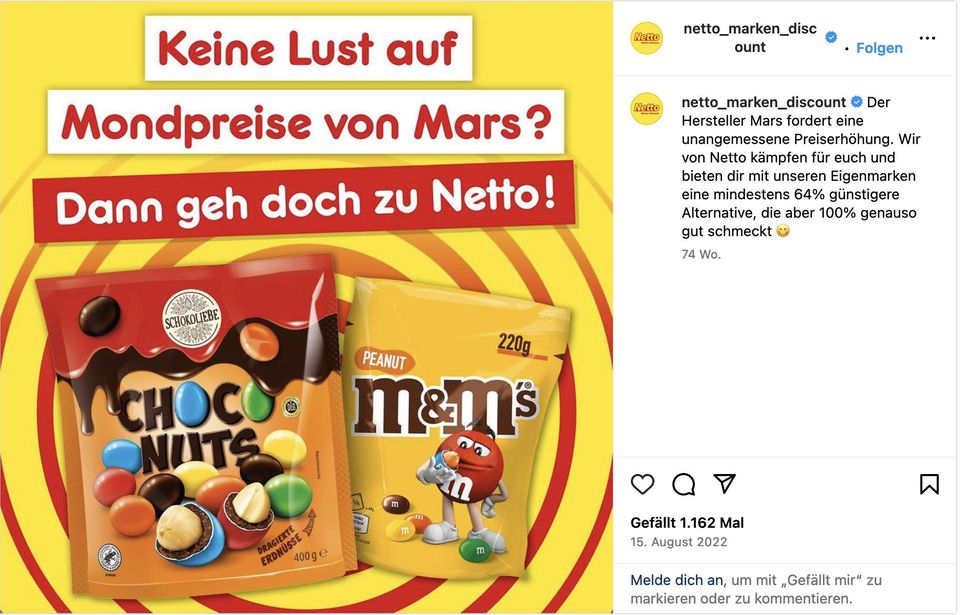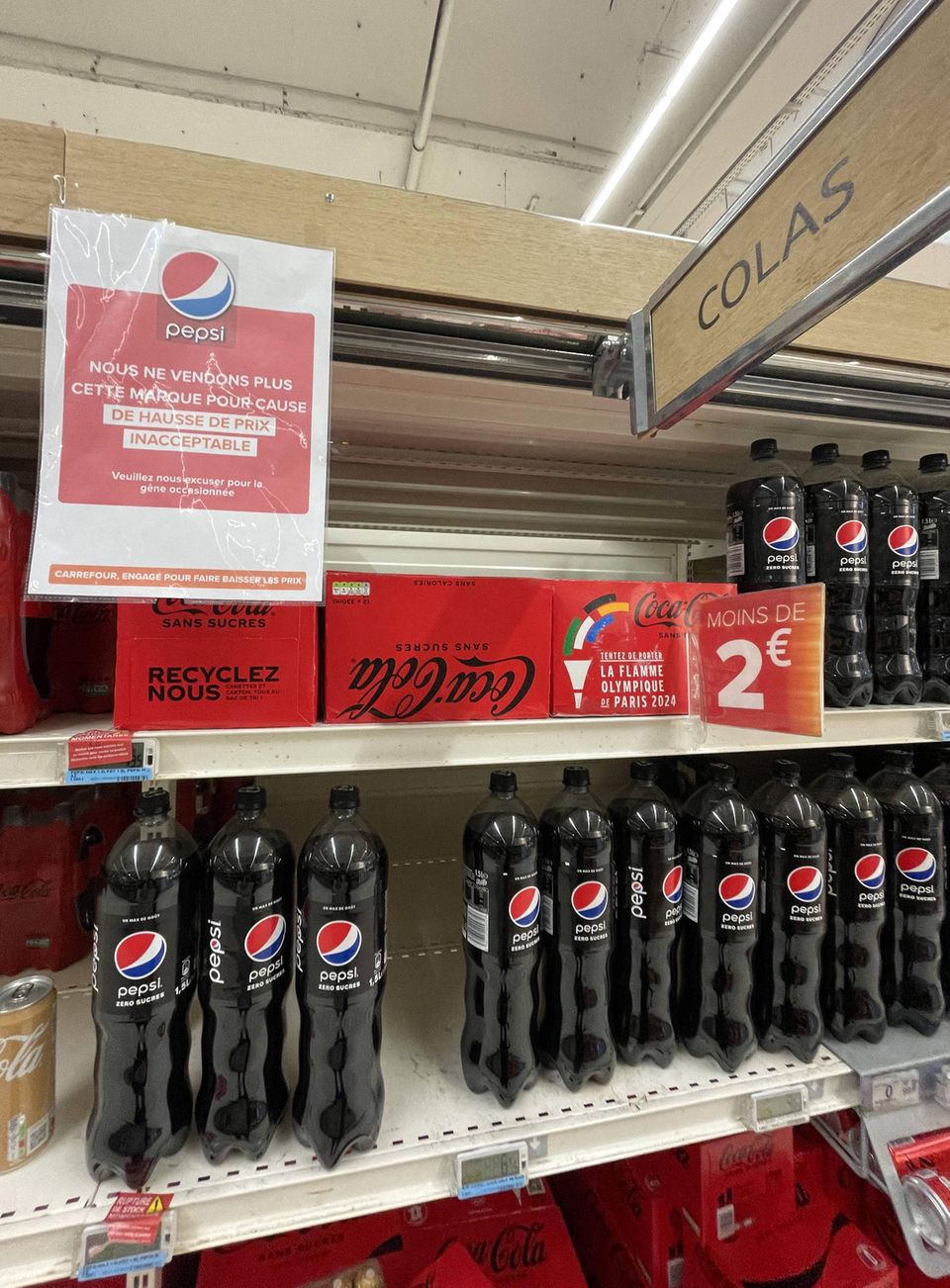In Germany, the supermarkets Edeka and Netto are fighting with the manufacturer Mars over product prices for Snickers and Co. France wanted to prevent such fights through state intervention – and failed spectacularly.
No M&M’s, no Mars, no Snickers, no Milky Ways – and that’s been the case for a year and a half: confectionery lovers have been having a hard time in Edeka and Netto branches for a long time. The reason for this is a price war between the supermarket chains and the producer Mars, which produces the products. Mars wanted to charge higher prices and pass them on to customers. Edeka and Netto, however, consider the demands to be excessive and quickly threw the products off the shelves. Only now, after 17 months, is a solution to the price issue slowly emerging. The products could cost a little more than before, but probably not as much as Mars is asking for.
France as a negative example
Such price wars between supermarkets and producers have become more and more common recently – which shows how competitive the product positions in the food retail sector are. In April 2023, 17 manufacturers stopped supplying the Edeka network at times. And he responded – somewhat successfully – by filling the free spaces with his own brands. There were no major complaints from customers, partly because the dealers successfully blamed the producers. Netto, for example, which belongs to the Edeka Group, ran a social media campaign: “Don’t want moon prices from Mars? Then go to Netto!”

In other countries, producers and supermarkets are also clashing, sometimes even involving the state because it had previously intervened. A negative example of this is France:
PepsiCo, manufacturer of drinks such as Pepsi and Lipton or the chip brand Lay’s, has stopped supplying branches of the French supermarket Carrefour for almost two weeks. According to the Financial Times, the company is demanding a price increase of seven percent. And this despite the fact that PepsiCo products have already increased by 25 percent last year, which was well above the industry average of seven percent. However, since many consumers took part in the price jump, the company senses that their willingness to pay will be even higher.
In order to prevent exactly such a debacle, the French government tweaked a few things and changed regulations: As a result, they wanted to protect both small manufacturers and consumers. Dealers were limited in their ability to lower their prices – while manufacturers were encouraged to enforce their demands. Initially, it was stipulated that the annual rounds of negotiations must be completed by March. The government later issued further rules to prevent traders from simply sourcing their goods from abroad.

Goods traded in France are subject to French law, regardless of where prices are negotiated. In particular, numerous restrictions apply to discounts. For example, retailers are only allowed to offer a 34 percent discount on cosmetics and health products. Above all, the position of smaller local manufacturers should be strengthened. For them, discount battles against large corporations with economies of scale are difficult to win.
The French government’s calculation was that its intervention in the market would cause prices to fall more quickly because smaller manufacturers would create competition. However, that backfired. Because of the resulting competition, prices rose rather than fell.
The price negotiation deadline until March has so far had the opposite effect: manufacturers know that supermarkets will face harsh penalties if they do not complete the negotiations by March. So manufacturers like PepsiCo insist on their demands.
Like Edeka, Carrefour could rely on its own brands
“Manufacturers have been given a very strong negotiating position,” says consumer researcher Ananda Roy to “”. “Retailers want to position themselves as a friend of consumers, but have to comply with very strict regulations. They are forced to offer consumers the best possible price – but at the same time cannot offer relevant price promotions.”
According to Carrefour boss Alexandre Bompard, large manufacturers like PepsiCo already have margins of over 15 percent. His company only makes five percent. So the government’s rules affect the wrong people. He only has one way out: namely, to rely more on own brands like German supermarkets.
This article appeared firstwhich, like stern, is part of RTL Deutschland.
Source: Stern




